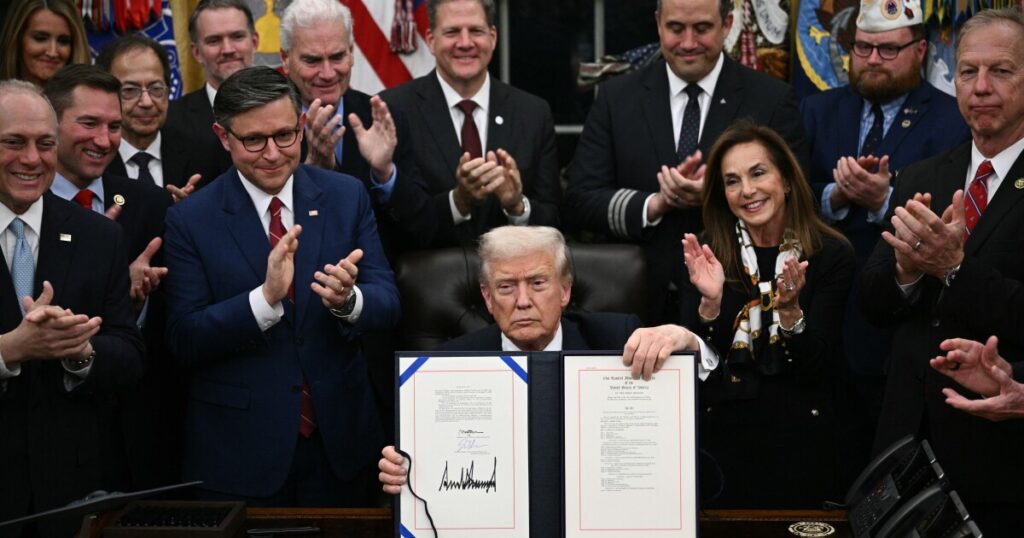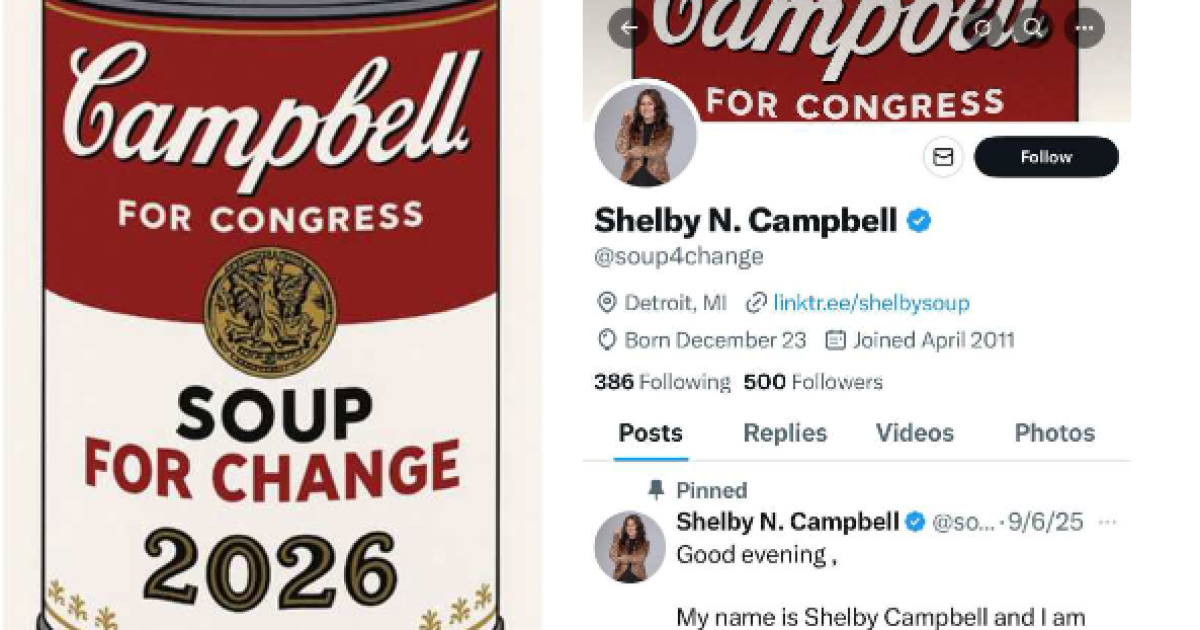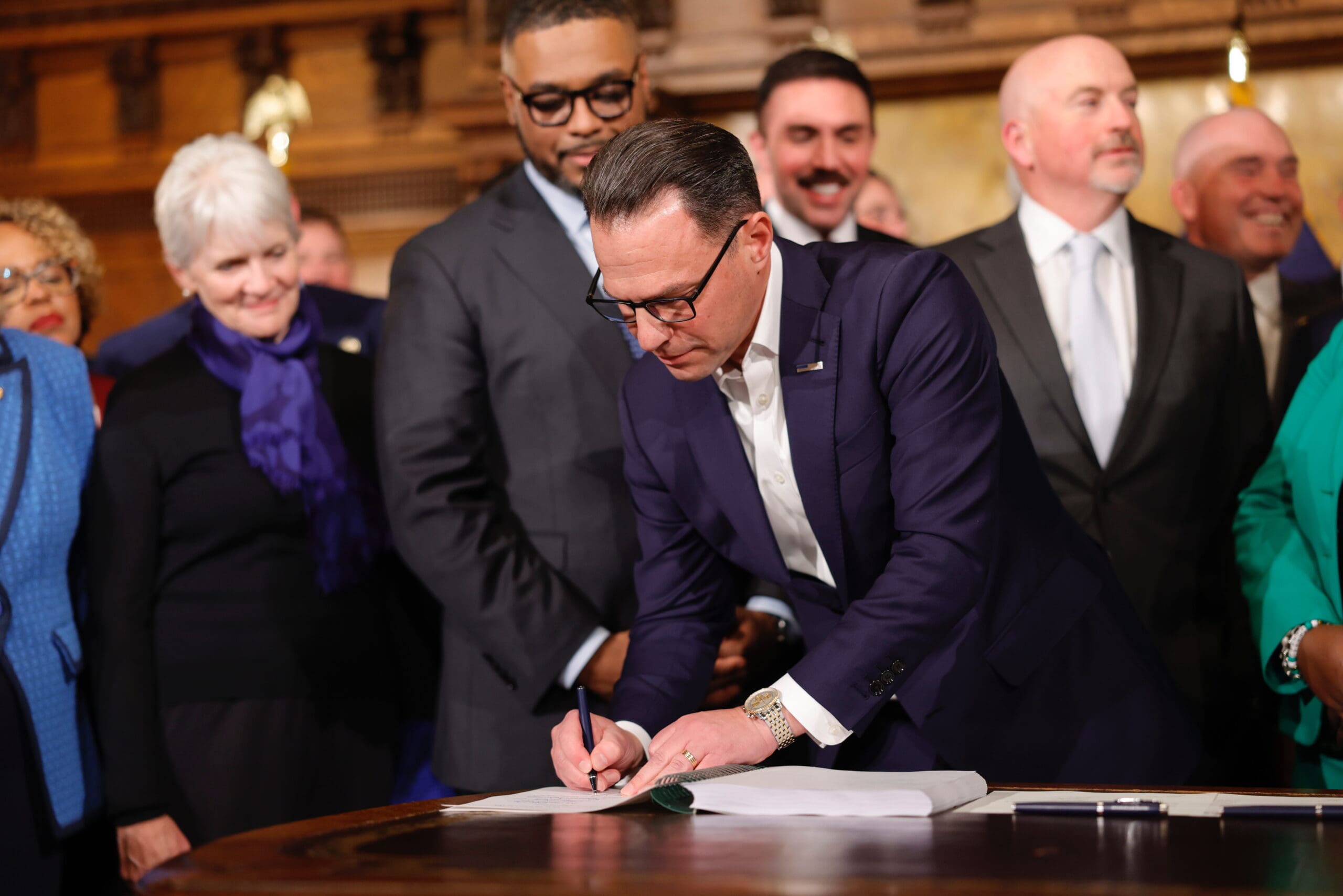Updated November 12, 2025 at 10:46 PM EST
The longest government shutdown in U.S. history has concluded with President Trump’s recent signing of a funding bill. This decision ends a 43-day stalemate that affected millions, yet achieved little in terms of political gains.
On Wednesday night, the House passed the bill, overcoming the tight Republican majority with support from six Democrats: Reps. Henry Cuellar, Don Davis, Adam Gray, Jared Golden, Marie Gluesenkamp Perez, and Tom Suozzi. The final tally stood at 222-209, with Republicans Thomas Massie and Greg Steube voting against.
Following the House’s decision, President Trump ratified the bill, attributing the prolonged shutdown to Democratic opposition. “This was an easy extension but they didn’t want to do it the easy way,” Trump stated. “They wanted to do it the hard way.”
The legislation maintains previous spending levels until January’s end for most sectors, while ensuring funding for certain agencies, such as the Supplemental Nutrition Assistance Program (SNAP), through September. This program, aiding about 1 in 8 Americans, faced legal challenges due to the shutdown. More information on the court battle can be found here.
The bill also reverses layoffs initiated during the shutdown, promises backpay for federal employees, and introduces safeguards against future layoffs. However, it sidesteps the contentious issue of expiring Affordable Care Act (ACA) subsidies.
A bipartisan agreement has led Senate Majority Leader John Thune to schedule a mid-December vote on extending these subsidies, a move that hasn’t fully satisfied Senate Democrats. As Sen. Tammy Baldwin expressed, “A handshake deal with my Republican colleagues to reopen the government and no guarantee to actually lower costs is simply not good enough.”
If the Senate passes a subsidy extension, it must clear the House, where Speaker Mike Johnson has yet to assure a floor vote.
A lot of pain, not a lot of gain
Historically, government shutdowns rarely serve as effective leverage for political objectives. The recent six-week standoff proved consistent with this pattern.
Senate Democrats, driven by their base’s demands, initially resisted funding the government without Republican agreement on ACA subsidies. This stance followed backlash from Democrats who, including Senate Minority Leader Chuck Schumer, had previously aligned with Republicans to avert a shutdown in March. Facing rising premiums due to expiring subsidies, Democrats hoped the shutdown’s adverse effects would prompt Republican negotiation.
However, Republicans maintained their stance, continuing to press for government funding. The shutdown’s impact was severe: 42 million SNAP beneficiaries missed food aid, air traffic controllers and TSA staff worked unpaid, prompting the FAA to reduce flights, and federal employees faced unpaid work.
As Sen. Tim Kaine acknowledged, “There was no guarantee that waiting would get us a better result, but there was a guarantee that waiting would impose suffering on more everyday people.”
Thune’s deal reflects his earlier statements of willingness to discuss ACA subsidies only once the government was funded.
Rep. Jared Golden, who supported the bill, noted, “Congress still has a window to pass bipartisan legislation to extend the ACA premium tax credits.” He emphasized the need for bipartisan cooperation to address health care.
During the shutdown, President Trump largely deferred to Thune, resisting Democratic attempts to draw him into negotiations.
What happens now?
Both parties face critical decisions that could impact their political fortunes in the coming year. Senate Democrats must quickly draft a bill on ACA subsidies that garners enough Republican support. Success would give them a legislative win as 2026 begins, while failure could still provide a strong campaign issue.
Some Republicans have shown interest in subsidy discussions, focusing on reforms like fraud prevention and income limits. Nevertheless, both sides must also address the broader budget, with nine appropriations bills needed before the short-term funding ends.
Copyright 2025 NPR
—
Read More Michigan News










